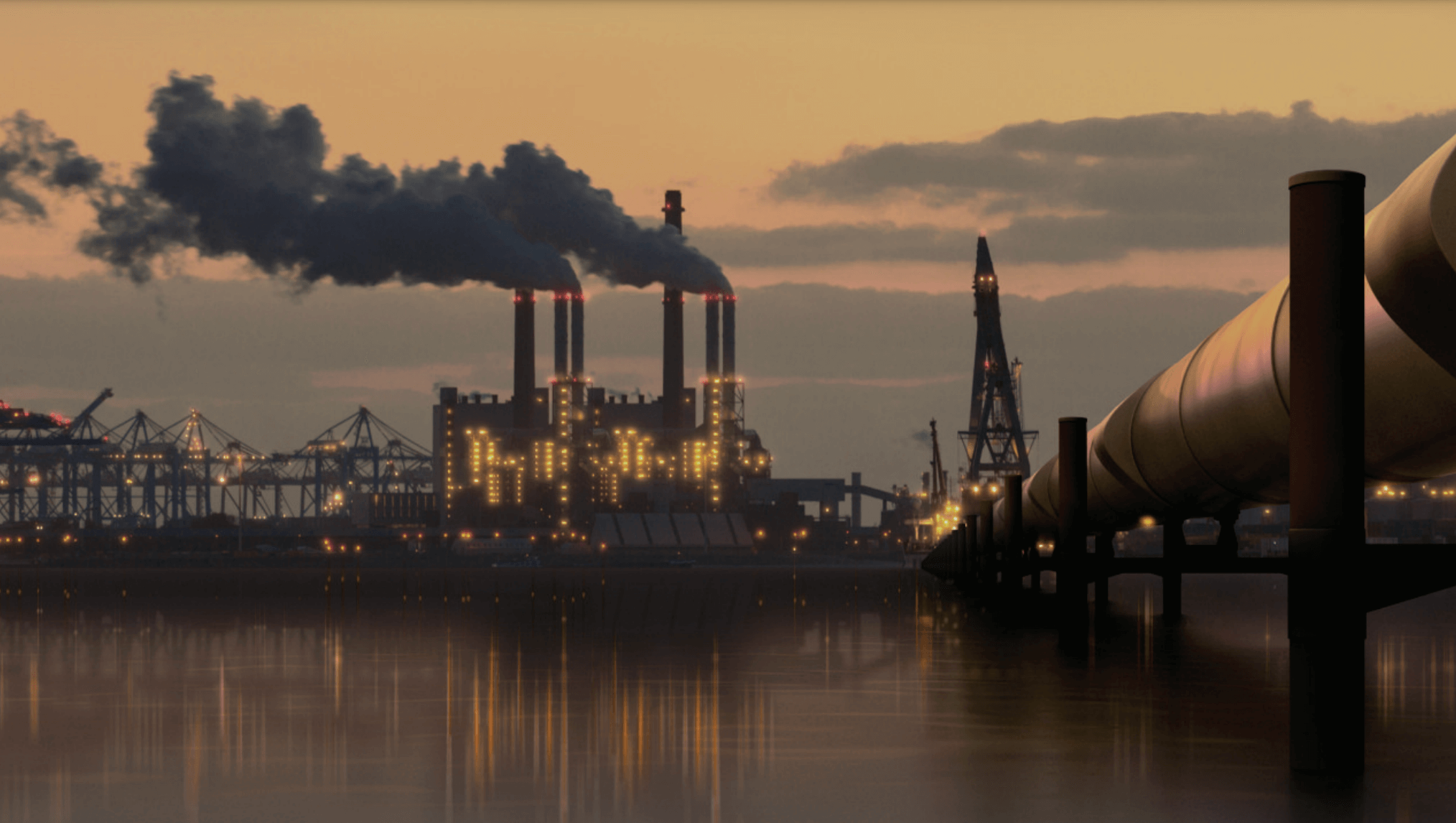
Report outlines KKR’s harm to frontline communities
September 7, 2023
Report Outlines KKR’s Harm to Frontline Communities As it Continues to Center a Fossil Fuel Strategy
Private equity behemoth KKR’s portfolio companies have committed numerous environmental violations and engaged in unethical business practices while contributing to the climate crisis, as KKR put money into fossil fuel projects that run decidedly counter to its preferred public image of a good steward of the Earth.
A new report, “Uncovering KKR’s Environmental Responsibility Gap” examines how Kohlberg Kravis Roberts & Co. and its affiliates have run three liquefied natural gas (LNG) investments—the Coastal GasLink pipeline in Canada; the Port Arthur LNG project in Texas; and Cameron LNG in Louisiana. Environmental protection agencies have already cited two of the projects for violations. Nevertheless, KKR companies expanded the projects over vocal opposition of local communities.
“Even though communities have continually sounded the alarm, KKR has repeatedly decided to invest in polluting gas infrastructure, a choice at odds with its efforts to shed the ‘barbarians at the gate’ label since the 1980s,” said Oscar Valdés Viera, Research Manager at Americans for Financial Reform Education Fund. “Not only do projects and choices like these continue to exacerbate our climate crisis, such investments form KKR and other private equity firms are also becoming increasingly risky, as the climate crisis worsens.”
The report is part of the Private Equity Climate Risks project, a collaborative effort investigating private equity’s impact on the climate crisis by Americans for Financial Reform Education Fund (AFREF), Global Energy Monitor (GEM), and the Private Equity Stakeholder Project (PESP).
KKR holds one of the largest fossil fuel energy portfolios among private equity firms. In recent years, KKR has invested at least $9 billion in a minimum of 14 projects related to the transportation and storage of gas and LNG, such as pipelines and storage terminals. Natural gas is predominantly methane, a greenhouse gas that is responsible for 30 percent of the rise in global temperatures since the Industrial Revolution.
“KKR’s investments are bankrolling fossil fuel assets with alarming records of environmental and community harm, including in low-income neighborhoods and communities of color,” said Alyssa Moore, Researcher at Global Energy Monitor. “Our analysis shows a troubling trend of the private equity giant continuing to expand into communities already oversaturated with projects that are spewing cancer-causing industrial air emissions.”
The proposed Port Arthur LNG project, for example, would increase the planned output of all US natural gas exports by approximately 15%, potentially emitting around 7.7 million tons of CO2 equivalent per year, similar to the annual greenhouse gas emissions from 17 natural gas-fired power plants. The terminal would also increase the toxic pollutant exposure for the predominantly Black and Latino coastal town.
“KKR’s messaging on the climate risks of their investments is not consistent with their actual investment actions,” said Nichole Heil, Research and Campaign Coordinator at Private Equity Stakeholder Project. “After initially investing billions into Port Arthur LNG two years ago, KKR then went all in on fossil fuels and injected even more capital into the terminal just this year. Now, with almost half of the Port Arthur equity being owned by KKR, the firm is culpable for the community and climate harms the project produces. The continued development of Port Arthur should be a concern to all who worry about escalating climate risks.”
The Cameron LNG project is another multi-billion dollar asset in which KKR is an investor, located along the Calcasieu Channel in Louisiana. Proposed expansions at the facility could make it one of the highest volume LNG exporters in the US, and the facility has also been in violation of at least multiple EPA statutes for nine out of the last 12 quarters, with repeated violations of the Clean Water Act in particular.
“KKR is choosing profits over people and refusing to consider the impacts of its investments on our communities,” said Roishetta Ozane, an environmental activist and mother of six kids living in Southwest Louisiana, just miles from Cameron LNG. “Our neighborhood is already ravaged by filthy polluting industries. Our air has been made toxic from cancer-causing chemicals. KKR is only concerned about getting richer, and refusing to consider the health, wellbeing, and futures of our children and grandchildren.”
The findings are part of a broader trend of major private equity firms investing in fossil fuels while promising to lessen their own climate impacts. Since 2010, private equity firms have invested over one trillion dollars in energy projects through complex corporate structures that largely limit their liability for any practices that may pose environmental or financial risks for the companies along the fossil fuel supply chain, those companies’ workers, or local communities.
The report contains a list of recommendations for KKR and the private equity industry at large to encourage greater transparency, accountability, and responsible investment practices within the private equity industry.
About Americans for Financial Reform Education Fund
Americans for Financial Reform Education Fund (AFREF) is a coalition of more than 200 civil rights, community-based, consumer, labor, business, investor, faith-based and civic groups, along with individual experts. Follow AFREF at www.ourfinancialsecurity.org and on Twitter @RealBankReform.
About Global Energy Monitor
Global Energy Monitor (GEM) develops and shares information in support of the worldwide movement for clean energy, seeking to build an open guide to the world’s energy system. Users of GEM’s data and reports include the International Energy Agency, United Nations Environment Programme, the World Bank, and the Bloomberg Global Coal Countdown. Follow GEM at www.globalenergymonitor.org and on Twitter @GlobalEnergyMon.
About the Private Equity Stakeholder Project
The Private Equity Stakeholder Project (PESP) is a nonprofit organization with a vision to bring transparency and accountability to the private equity industry and empower impacted communities. Follow PESP at www.pestakeholder.org and on Twitter @PEstakeholder.
